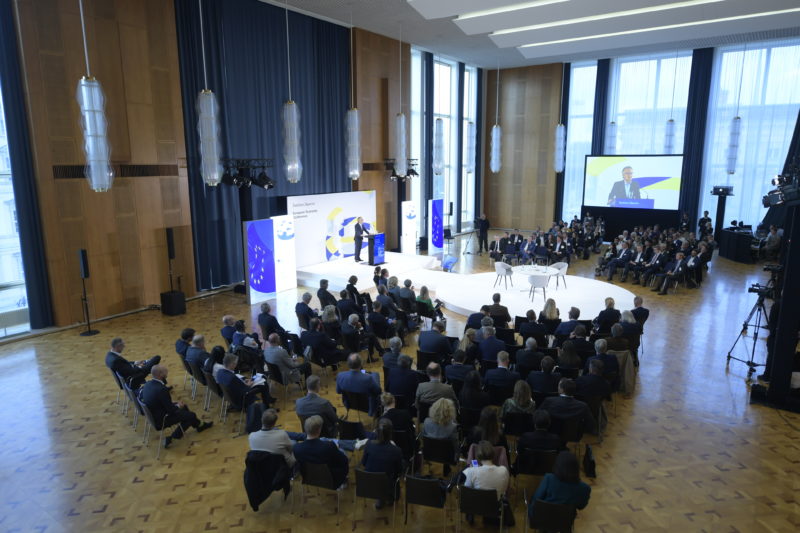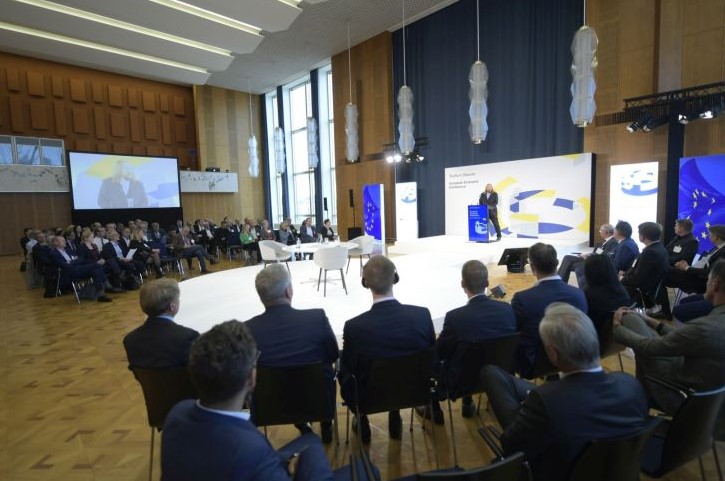
“If Europe speaks with one voice, then Europeans could live in happiness, in prosperity and without borders.” Winston Churchill already knew what a united Europe could mean for Europeans. All the more important was this first joint conference, the European Economic Conference (EEC) on the future of Europe, United Europe initiated in partnership with the F.A.Z. and the ESMT (European School of Economics) on 26 and 27 September in the historic former Council of State building in Berlin.
Europe sees itself confronted with a number of existential challenges not seen in decades. Are topics such as digitalisation and climate protection still a priority at the moment? How does Europe achieve new, value-based sovereignty in the face of changing geopolitical tensions? What is the status quo of the Single Market and the European Economic Area?
“Europe will be forged in crisis, and will be the sum of solutions adopted for those crises.” This formula was used by Jean Monnet (1888-1979), the most significant founding father of the EU, to describe the logic of European integration. It is always quoted when the process is challenged. This is also the case today.
The EEC discussed possible solutions to crises together with Dr Anton Hofreiter, Chairman of the Committee on European Union Affairs, The Greens, Christian Lindner, Federal Minister of Finance, FDP; Heli Tiirmaa-Klaar, Director, Institute for Digital Society, ESMT; Adonis Georgiadis, Minister for Development and Investment in Greece, Klaus Regling, Managing Director at European Stability Mechanism, Siegfried Russwurm, President of the Federation of German Industries, Daniel Gros, Director of the Brussels think tank “Centre for European Policy Studies” (CEPS); Prof. Dr B. Jacobs, Professor of Public Economics, School of Business and Economics, Vrije Universiteit Amsterdam, Netherlands; Maria Röttger, CEO & President, Michelin Europe North; Kimon Zorbas, Head of Public Affairs, DATEV eG and the participants.
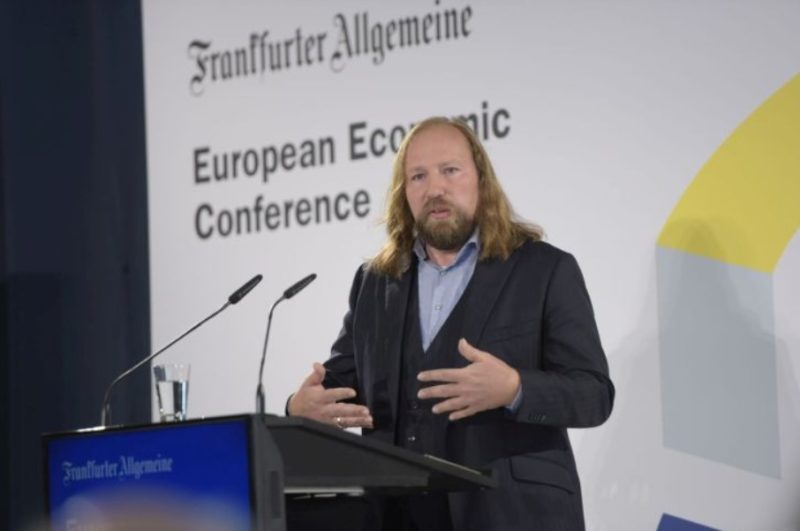
Dr Anton Hofreiter, Chairman of the Committee on European Union Affairs, expressed concern that Europe is no longer able to deal with all the crises at once. After all, one crisis does not disappear because another is more pressing: “When we think of Ukraine, we have made mistakes as a society and as the previous government. The hope of finding a diplomatic way with Russia was false. We were wrong, the Eastern Europeans were already right in 2014. They were right in 2008 and they were right about Chechnya. We have been too weak against autocracies and dictators. We didn’t want to see the development of Russia and China in the last few years. If we want to make Europe more capable of acting, we as Germany must assume our leadership role. Leadership does not mean pushing through German interests but rather using Germany’s power in Europe’s interest and implementing European interests.
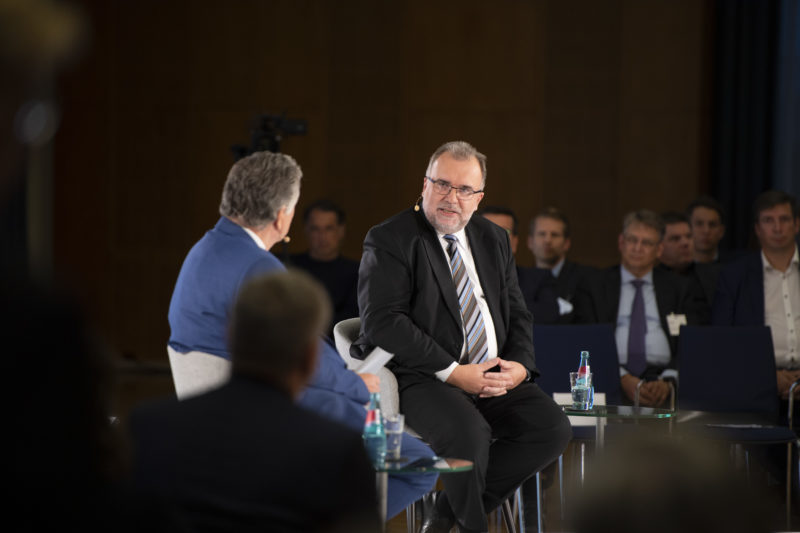
Siegfried Russwurm, the President of the Federation of German Industries, predicted what’s in store for Europe and whether there is enough energy in the EU this winter. Russwurm’s foresight is rather bleak: “There will be just enough energy in Germany. It will crunch but not on a large scale however in some corners it will be very difficult. Fatalism is not a trait of entrepreneurs. It is remarkable how many companies are considering relocating their businesses abroad. Let’s not kid ourselves.”
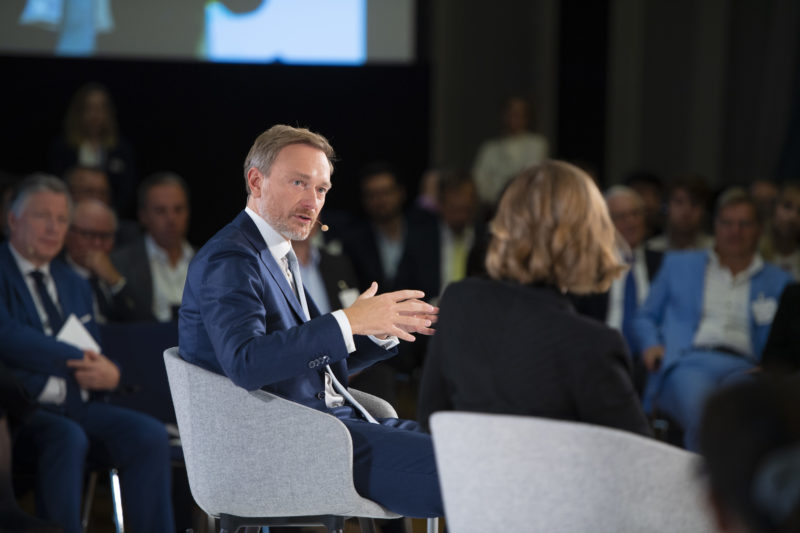
Federal Finance Minister Christian Lindner explained the German positions and his financial policy-making, on which not only Germany’s but Europe’s stability depends: “About ten years ago, I met Hans-Dietrich Genscher, for a series of talks in preparation for a joint book (“Brückenschläge”, 20213). It was about the importance of Europe and the European peace process. I said, Mr Genscher, after all, you can’t base the benefits of Europe on peace alone, peace is what we have! What a mistake: now we are at war again on European territory.”I am very concerned about macroeconomic developments. The expansionary fiscal policy over the past years has contributed to record-high inflation in Germany and Europe. Inflation is the greatest threat to our economic foundation in Europe. We must respond to the challenge as a matter of urgency – in the monetary union and in the European Union.”
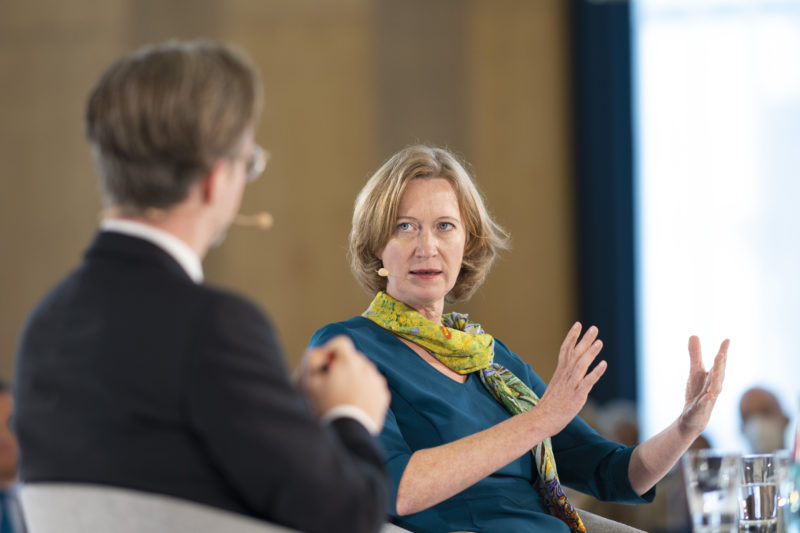
Kerstin Andreae, Chairwoman of the Executive Board and Member of the Presiding Committee of the BDEW reassured the protection and support of gas importers: “In a chain where we have an importer, an energy supplier, an intermediary and a customer, we cannot let the importer down. That would lead to an uncontrollable domino effect. The Russian gas dependency is something we are all to blame for, collectively.”
Under the following link, you can have a look at all the contributions of the European Economic Conference.
We thank the publisher of the F.A.Z., Mr Gerald Braunberger, the F.A.Z. conference team and our colleagues at ESMT for jointly organising the first EEC in Berlin on 26 and 27 September 2022.



